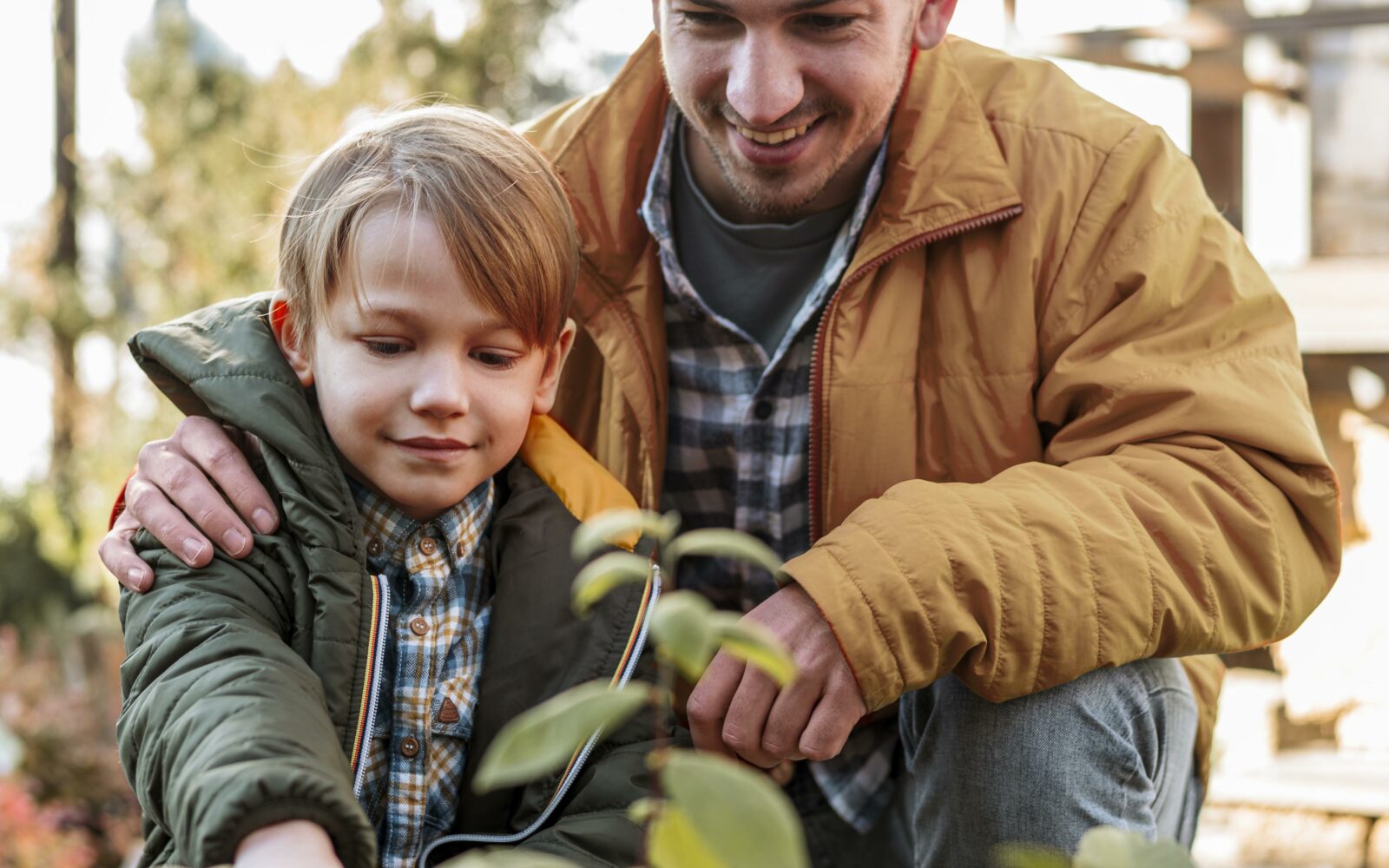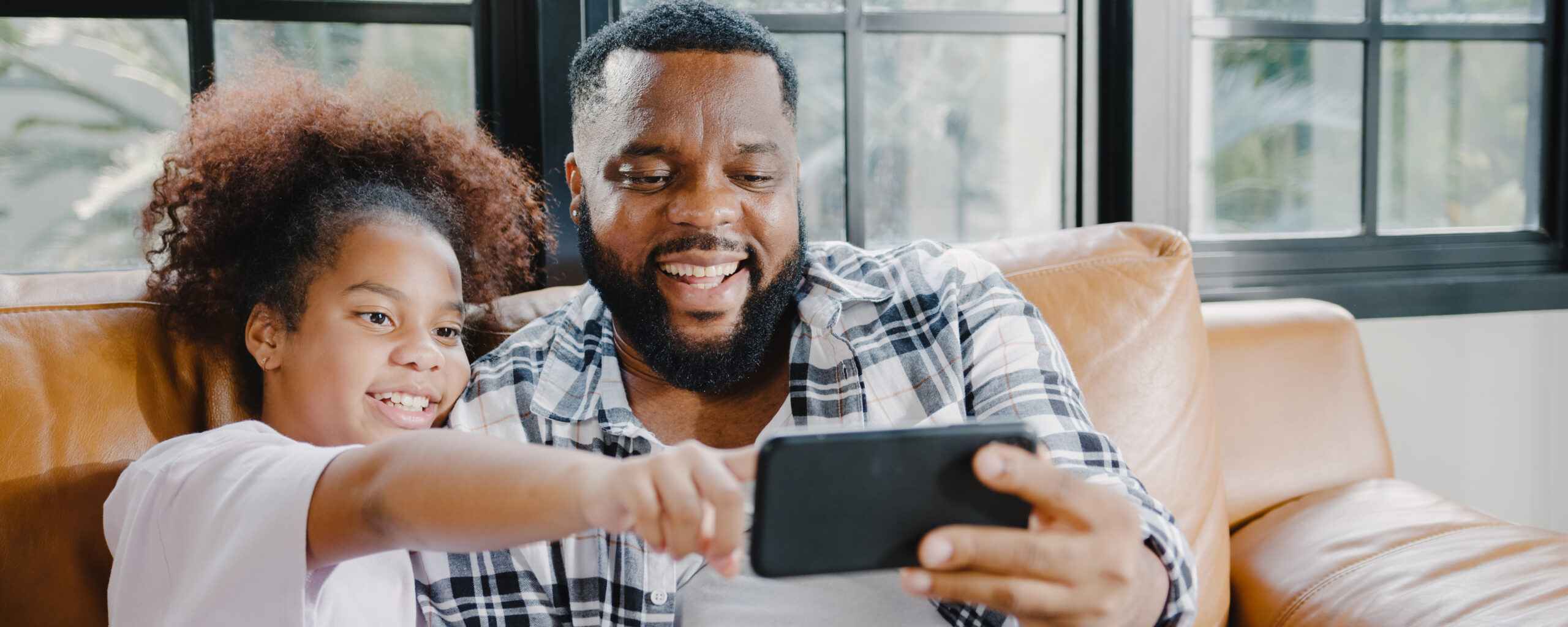Being a father is part of the recovery journey, we can help families heal and co-parent with our Family Addiction Recovery Supports Group.
Family Addiction Recovery Supports
Many clients need specialized support developing and remaining committed to co-parenting or parallel parenting plans. Whether they’re currently divorced or are cohabitating before entering residential treatment support is needed in these relationships. Oftentimes, the co-parent has essentially fulfilled the solitary role of patenting due to the father’s severe substance use dependencies.
Participants in the co-parenting group can expect to gain co-parenting knowledge and skills that will benefit both them, their children and their co-parenting partner. Clients who attend co-parenting group report reduced family conflict, increased sense of competency as parents, and an overall improved prognosis for ongoing, long term recovery. Last Door offers other Family Addiction Recovery Support Groups as well
What Does Co-Parenting Look Like?
Co-parents may include a variety of configurations: They may include two unmarried cohabiting adults, two married adults, two single adults, two adults of the same sex, or a single adult and a married adult. Co–parents may also include the biological parents of a child, blended families, or other family members. Last Door’s co-parenting groups support clients in developing and practicing the skills necessary to co parent successfully. Co-parenting can be a viable option when it is implemented by parents who want it to work and understand that children’s’ needs supersede their own self-interest and past hurts. Co-parents also need to look at their relationship and determine if Co-dependency is an issue.
What is Co-Dependency?
Co–dependency is an unhealthy relationship dynamic in which two people rely on each other for their emotional and physical needs. It can be an issue for co–parents if it causes one or both of them to become overly reliant on the other for emotional or practical support, or to the point where their own needs become secondary. Co–parents should strive to maintain a healthy balance of independence and interdependence in order to ensure that both parties are able to meet their own needs and the needs of their children. It’s also important for co–parents to take time to nurture their own emotional health and well–being, this can help prevent or reduce the risk of co–dependency. Take our Co-Dependency Self Test to find out more. Co-Dependents Anonymous is a great resource if you feel like this is an issue for you and your partner. Co-Dependency is addressed in our Family Addiction Recovery Support Groups.
Co-Parenting Group
Co parent’s groups are smaller psycho-educational and experiential group sessions focused on the development of effective co-parenting skills. Weekly co-parenting groups are facilitated by Last Door’s Clinical team. Clients attend co-parenting groups as part of their treatment planning to support healthy family functioning.
Group sessions focus on:
- Parental behaviours effects on children,
- Damaging vs productive parental behaviors,
- Focus questions for improving co-parenting relationships,
- Building resilience in children and families,
- Intimacy, and effective communication,
- Fostering understanding relationships,
- Defining our co parent relationships,
- Codependency and ways to challenge patterns
- Developing a co-parenting plan
- Developing concrete financial plans for child/spousal support
- Developing and following through on Visitation plans
- When/how to use mediation
Supports for Couples Counselling
Couples counselling is provided, as needed, to support the practice of co-parenting and family reunification goals. As such, it can help couples improve communication, conflict resolution, and problem–solving skills. Additionally, with the skills from Co-Parenting Group it can build trust, strengthen their relationship, and help them better understand one another‘s needs. By exploring and understanding each partner‘s needs, couples can find solutions that are best for everyone involved. Couples counselling can also provide a safe space to process and work through any underlying issues that may be causing conflict, such as unresolved grief, trauma, and mental health concerns. While counselling can be a useful tool, we encourage our clients to start with Co-Parenting Group so they can first take responsibility for themselves and their role in the relationship.
Peer Support and Accountability
Clients report a sense of relief at not being alone in their struggles to co parent. Clients also report feeling more empowered to make positive parenting decisions. They find that having the support of a professional who understands the complexities of co–parenting helps them to stay focused on the goal of raising their children in a healthy and supportive environment. Additionally, clients often report feeling better equipped to handle any conflicts that arise in the parenting relationship. Overall, clients report feeling more supported and less overwhelmed with the challenges of co–parenting. Relationships improve and noticeable improvement in children’s sense of wellbeing is observed due to lessening of parental conflict.
How often does the Group Meet?
Groups are twice weekly in six-week cycles with ongoing intake to the group. The Social Model programming supports client’s ongoing attendance through multiple cycles of the co parents group to support healthier communication, accountability and mutual support of peers. The program is designed to promote understanding and empathy, increase self–awareness, and build communication and problem–solving skills.
If you or someone you care about is suffering from addiction, reach out and we can help you figure out the next steps.
Keep Reading
Addiction Support for Spouses – Partners Group
Partners are supported during their loved ones treatment process with weekly groups and…
Parents Group – Addiction Support for Parents
Parents can heal from the harms of addiction.
Self Test Drug Use
Are you wondering if you may have a problem with drug addiction? Answer…
Testimonials
“I like being a part of Last Door's alumni group because I get to be a part of a very strong brotherhood”



